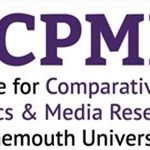Fri 16 May 2025 – in person – Talbot Campus
This is a one-day networking event focusing on crimmigration and migrant experiences, inviting all ECRs nationally from across the social sciences to discuss policies, practices, and responses to migration. The scope of this event is to identify and highlight how crimmigration (i) produces a moral panic and impacts social cohesion and (ii) challenges the inclusivity and diversity of contemporary societies.
This networking event is an initial step to establish a network and future research collaborations to explore the central question of how migrants and migrant communities are considered threats, how they are criminalised through the criminal justice system, government policy and political figures in the media, and how migration policies are used to legitimise the states’ power.
ECRs will have networking and collaboration opportunities, as well as the opportunity to expand their approach to public engagement via media training and connecting with non-academic local stakeholders from the CJS and NGOs.
Format and Key Highlight
- Research Overview by each ECR: These presentations can result in forming the basis of a book proposal for an edited collection on crimmigration and migrant experience
- Round-table discussions on current migration policy with ECRs and non-academic stakeholders working in the CJS and NGOs: The round-table discussion will offer a range of opportunities to build an inclusive approach among public, policy and academic relations for reforming policies and new initiatives, for ECRs to establish lasting networks and for non-academic stakeholders to collaborate on joint research on migration policy.
- Media training for the ECRs by Prof Sam Goodman (Department of Humanities & Law Bournemouth University): 90-minute media training session to help ECRs learn how to use media effectively to provide academic content to a wider public audience.
- Keynote talk by Prof Ana Aliverti (School of Law, University of Warwick): This session will bring both ECRs and established scholars together for a vibrant discussion on migration, state control and criminalisation of migrants.
The event invites participants who
- Are a member of the British Academy Early Career Researcher Network,
- Interested in conducting research on issues surrounding migration, border criminology, criminalisation of migrants, state power,
- Enthusiastic about building lasting, meaningful networks with ECRs and non-academic stakeholders.
Please submit a brief outline of research interests and ideas for future research related issues around migration and criminalisation of migrants (no more than 300 words) to dusta@bournemouth.ac.uk and awimbledon@bournemouth.a.cuk
Topics include but are not limited to
- Crimmigration
- Links between migration and crime
- Racial discrimination in policing
- Detention & Deportation Regimes
- Far right extremism
- Media representation of migrants
- Securitisation of migrant communities
- Border policies
Deadline for submission: 25th April 2025
Preliminary Programme
Session 1: Networking & Knowledge Exchange
10:00- 10:30: Arrival and Registration
10:30 – 10:40: Opening Introduction from Dr Dilvin Dilara Usta and Dr Anna Wimbledon
10:40- 12:00: Networking and Research Overview with coffee by ECRs
Session 2: Building Connections & Dialogue
12:00- 13:00: Round-table discussions with ECRs and stakeholders from NGOs and CJS
13:00-14:00: Networking Lunch
Session 2: Media Training
14:00-15:20: Participatory media training by Prof Sam Goodman, Department of Humanities & Law, Bournemouth University
15:20- 15:30: Coffee
Session 4: Keynote talk
15:30-16:30: Keynote talk by Prof Ana Aliverti (School of Law, University of Warwick)
16:30-: 16:45: QA session and Closing remarks
17:00: Networking dinner (Optional)
Event Aims and Objectives
- Generate and widen the research network among UK-based Early Career Researchers to provide opportunities for future collaborative activities and engage in joint manuscript writing. The paper presentations from the networking event will provide the basis for an edited collection.
- Widen methodological discussions on how academics can use the media to counter anti-migrant narratives and facilitate humanising representations of migrant communities to inform policy reform and changes.
- Reinforce the importance of collaboration between academic and non-academic stakeholders to gain an understanding of the aims of specific migration legislation and the Criminal Justice System’s perceived effectiveness in achieving these aims
Session Facilitators – Dr Dilvin Dilara Usta and Dr Anna Wimbledon
 Knowledge Exchange BU Workshop Supporting refugees, asylum seekers and migrants in Dorset
Knowledge Exchange BU Workshop Supporting refugees, asylum seekers and migrants in Dorset










 New Nepal scoping review on maternal & neonatal health
New Nepal scoping review on maternal & neonatal health Fourth INRC Symposium: From Clinical Applications to Neuro-Inspired Computation
Fourth INRC Symposium: From Clinical Applications to Neuro-Inspired Computation Writing policy briefs
Writing policy briefs Upholding Excellence: The Concordat to Support Research Integrity
Upholding Excellence: The Concordat to Support Research Integrity ECR Funding Open Call: Research Culture & Community Grant – Application Deadline Friday 12 December
ECR Funding Open Call: Research Culture & Community Grant – Application Deadline Friday 12 December MSCA Postdoctoral Fellowships 2025 Call
MSCA Postdoctoral Fellowships 2025 Call ERC Advanced Grant 2025 Webinar
ERC Advanced Grant 2025 Webinar Horizon Europe Work Programme 2025 Published
Horizon Europe Work Programme 2025 Published Horizon Europe 2025 Work Programme pre-Published
Horizon Europe 2025 Work Programme pre-Published Update on UKRO services
Update on UKRO services European research project exploring use of ‘virtual twins’ to better manage metabolic associated fatty liver disease
European research project exploring use of ‘virtual twins’ to better manage metabolic associated fatty liver disease